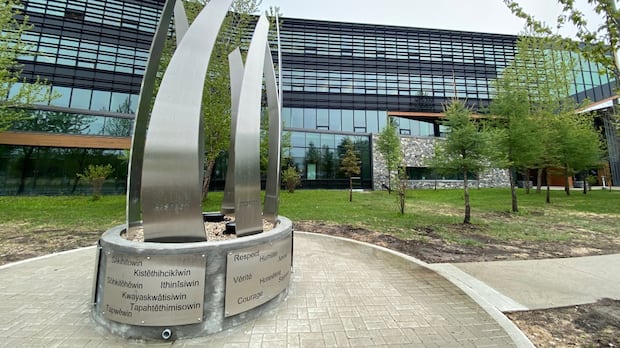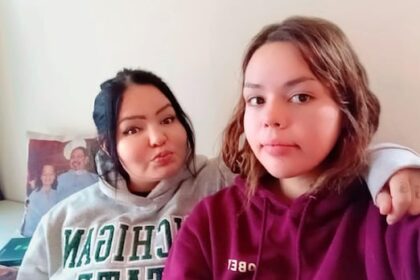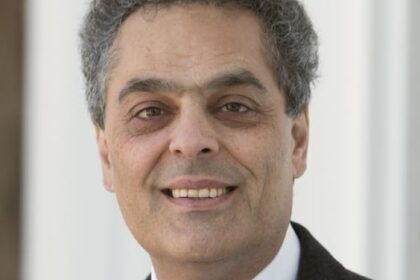ManitobaBeginning next year, the University of Winnipeg will offer a bachelor’s degree in Indigenous language immersion focused on the Anishinaabemowin (Ojibway) language, while University College of the North’s bachelor’s degree will develop fluency in Ininimowin (Cree).University of Winnipeg, University College of the North will offer Indigenous language bachelor’s degreesBryce Hoye · CBC News · Posted: Oct 20, 2025 4:32 PM EDT | Last Updated: 4 hours agoPâkosêthimowin, a Cree word that translates to hopes and dreams, is inscribed on this sculpture outside University College of the North in Thompson. UCN will offer a bachelor of Indigenous languages program focused on fluency development in Ininimowin (Cree) next year. (Jenna Dulewich/CBC)Two post-secondary schools in Manitoba hope new bachelor’s degrees in Indigenous languages will help revitalize and preserve First Nations cultures.Beginning next year, the University of Winnipeg will offer an Indigenous immersion bachelor of arts focused on the Anishinaabemowin (Ojibway) language, while University College of the North’s bachelor program will concentrate on developing fluency in Ininimowin (Cree).Doug Lauvstad, UCN president and vice-chancellor, said the northern program aligns with recommendations from the Truth and Reconciliation Commission for more language retention initiatives.”In northern communities, the overpowering presence of loss of language is something that many of the elders and community leaders sort of bemoan that we really need to find a way to restore language … and get young people speaking their language,” Lauvstad said.”Language is culture.” The province is contributing a combined $4.5 million toward the bachelor’s degree programs, a government news release said on Monday.The University of Winnipeg bachelor’s degree in Indigenous language immersion in Anishinaabemowin (Ojibway) will begin in January, the province says. (Darren Bernhardt/CBC)That includes $2.3 million toward creation of the U of W immersion program, the first in Manitoba to focus on teaching Ojibway to second-language learners, the province said.Manitoba is also providing $759,000 to help UCN run its program, and another $1.49 million in capital costs for the Thompson-based school to retrofit an existing campus space into the new Centre for Aboriginal Languages and Culture.One aim is to establish a base of grads who then have the option to pursue teacher certifications in either language.Prospective Ojibway or Cree learners can already apply online to enrol in the programs, with expected start dates set for January 2026.UCN plans to eventually launch three education tiers: a one-year certificate in Ininimowin, a two-year diploma or a three-year bachelor’s degree, Lauvstad said.The program will also give students hoping to pursue graduate degrees in health, education and law an extra skill that will benefit them in the labour market and Manitoba’s economy more generally, he said.”This program, we believe, will provide an excellent foundation for many professional programs, either at UCN or other institutions,” Lauvstad said.Advanced Education and Training Minister Renée Cable said in a statement that the programs will help support people who wish to go on to become Indigenous language teachers and help bolster “cultural and linguistic foundations that will shape future generations.”The province said the programs support the Indigenous languages of Instruction strand of the Public Schools Amendment Act to prioritize introduction of more Indigenous language programs into all levels of education in Manitoba.ABOUT THE AUTHORBryce Hoye is a multi-platform journalist with a background in wildlife biology. He has worked for CBC Manitoba for over a decade with stints producing at CBC’s Quirks & Quarks and Front Burner. He was a 2024-25 Knight Science Journalism Fellow at MIT. He is also Prairie rep for outCBC. He has won a national Radio Television Digital News Association award for a 2017 feature on the history of the fur trade, and a 2023 Prairie region award for an audio documentary about a Chinese-Canadian father passing down his love for hockey to the next generation of Asian Canadians.Selected storiesEmail: bryce.hoye@cbc.caFacebookMore by Bryce Hoye
Wednesday, 4 Feb 2026
Canada – The Illusion
Search
Have an existing account?
Sign In
© 2022 Foxiz News Network. Ruby Design Company. All Rights Reserved.
You May also Like
- More News:
- history
- Standing Bear Network
- John Gonzalez
- ᐊᔭᐦᑊ ayahp — It happened
- Creation
- Beneath the Water
- Olympic gold medal
- Jim Thorpe
- type O blood
- the bringer of life
- Raven
- Wás’agi
- NoiseCat
- 'Sugarcane'
- The rivers still sing
- ᑲᓂᐸᐏᐟ ᒪᐢᑿ
- ᐅᑳᐤ okâw — We remember
- ᐊᓂᓈᐯᐃᐧᐣ aninâpêwin — Truth
- This is what it means to be human.
- Nokoma











